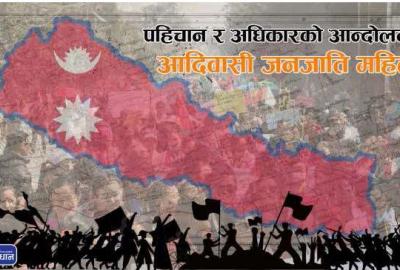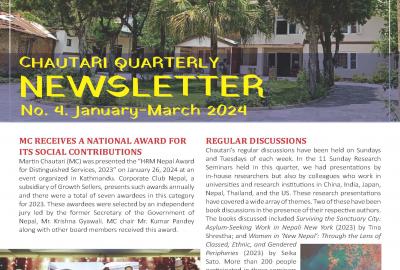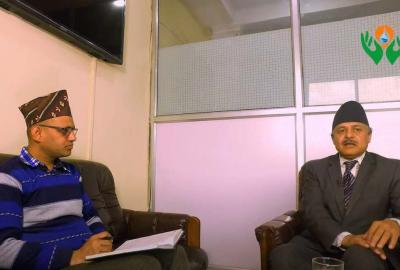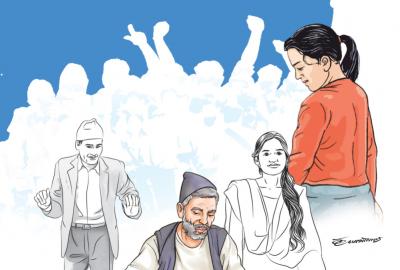Aug 23, 2016-Nepal’s school education system, one of the most decentralised sectors, involves various institutions at the local level. The current mode of decentralisation allows school stakeholders to spend state funds as specified and transferred by the centre while they may use local resources at their own discretion. Although the percentage of education budget has gradually decreased in recent years, the amount is increasing in real terms. Meanwhile, it is reported to be one of the most corrupt sectors in the annual reports of the Commission for the Investigation of Abuse of Authority (CIAA) and Office of the Auditor General (OAG). Consequently, this state of affairs seriously undermines students’ right to education as envisaged in the constitution that every citizen is entitled to free and compulsory education at the basic level (from grade one to eight).
As a result of the decentralisation initiative in the past decade, the role of local stakeholders—the Head Teacher (HT), School Management Committee (SMC), and Parents Teacher Association (PTA)—has become vital in terms of managing state funds disbursed to schools. To maintain checks and balances, schools should undergo social and financial auditing every year by a social auditing committee formed in the chairmanship of PTA and a District Education Office (DEO) appointed auditor. However, the lack of democratic decision-making process, flexible policy provision and trained human resource often results in the misuse of public finance in schools. It is necessary for the local stakeholders to overcome these bottlenecks in dealing with public funds in the best interest of citizens as transparently as possible.
Policy and practice
As envisioned in the existing policy provision, the responsibility of managing public finances is mainly of the HT and SMC. Specifically, the HT should prepare estimated budget plans, get them approved by the SMC and send them to the DEO annually within the stipulated time. However, research shows that a significant proportion of HTs hardly follow the due processes, mainly because they do not have the skills. Moreover, the lack of democratic decision-making process in the institutions aggravates the situation. In many cases, the HT and SMC chair influence the decision-making process relating to school finance, thereby misusing their authority to fulfil their vested interests as reported consistently over the years in the CIAA and OAG annual reports. Hence, this state of affairs potentially adds to the financial irregularities in schools.
Similarly, schools should spend the public funds for the purpose they are released by the centre as per the existing policy provision. At present, a major proportion is allocated for teachers’ salary, followed by construction, textbooks, scholarships and miscellaneous expenses. As the fund is earmarked under certain headings, school stakeholders have no right to use them creatively based on their local needs and priorities. They have to use the fund as it is disbursed for; otherwise, they will have to face legal sanctions. In this sense, the existing policy provision looks somewhat mechanistic as school stakeholders can hardly use their discretion in spending public funds for better outcomes.
In order to maintain transparency, existing policy envisages that schools will undergo financial and social auditing annually. A DEO appointed auditor carries out financial auditing and a social auditing committee formed in the chairmanship of PTA conducts social auditing. However, the annual reports of the CIAA show the prevalence of discrepancy by DEOs while appointing auditors for schools in some of the districts and the poor quality of most of the auditing. Similarly, a significant proportion of schools are unaware of social auditing guidelines. A study by New Era, a non-governmental, non-profit research organisation, shows that about 60 percent of schools undergo this process. This type of mechanism has little role to contribute to financial transparency in schools.
The policy provision envisions the HT or a person authorised by him/her taking over the responsibility of maintaining accounts of income and expenditure in a format provided in education regulations. In practice, it is primarily the HT who carries out the job besides taking regular classes as is generally the case in the primary schools. In this case, the HTs are not well trained in account keeping and have very limited knowledge. This severely constrains their ability to execute the responsibility effectively, resulting in poor and unsystematic financial recordkeeping in general. Given this situation, schools find themselves in desperation to keep a proper record of school finance. This raises serious concerns about the proper management of public finance at the school level.
Strengthening stakeholders
To overcome these challenges, school stakeholders as institutions need to democratise the decision-making process so as to counter the influential roles of the HT and SMC chair in crucial issues. On the whole, a democratic decision-making process is more likely to yield better results in terms of managing public money. At the same time, it is likely to check the misuse of authority.
Furthermore, the policies should be made more flexible so that school stakeholders can use public money more creatively. In case local stakeholders are provided with opportunities to use their capability, they would gradually be empowered instead of having to carry out orders from higher authorities. At the same time, it is more likely to resolve local problems practically because they know more about their contexts and ways of dealing with the complexities around them.
To realise the objectives of the decentralisation initiative, capacity building of local institutions or stakeholders is a must. They should at least have an idea of existing policies that govern the institutions, including the provision for social and financial auditing of school finance. Above all, those who keep financial records of schools should have the necessary skill so as to avert the risk of financial misuse.
Budhathoki is a researcher at Martin Chautari, a non-profit organisation based in Kathmandu
Source: http://kathmandupost.ekantipur.com/news/2016-08-23/public-finance-in-schools.html









